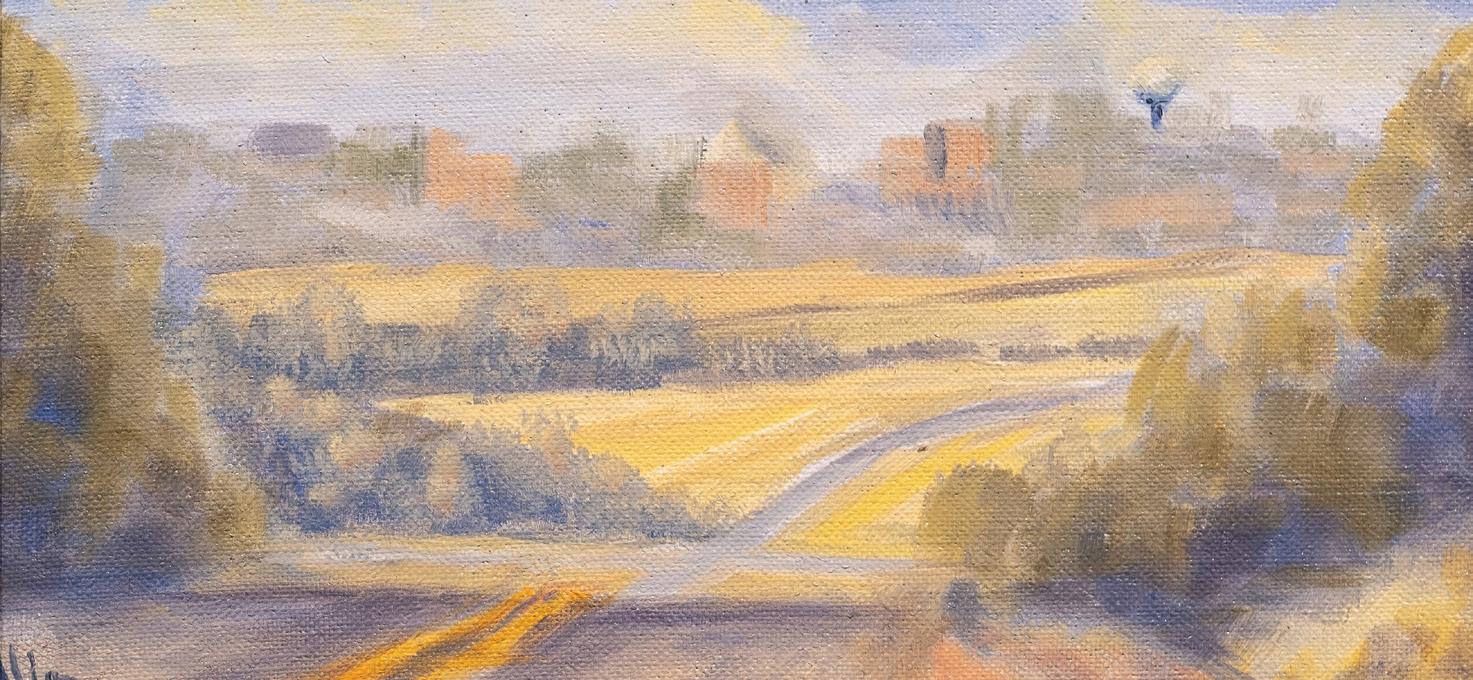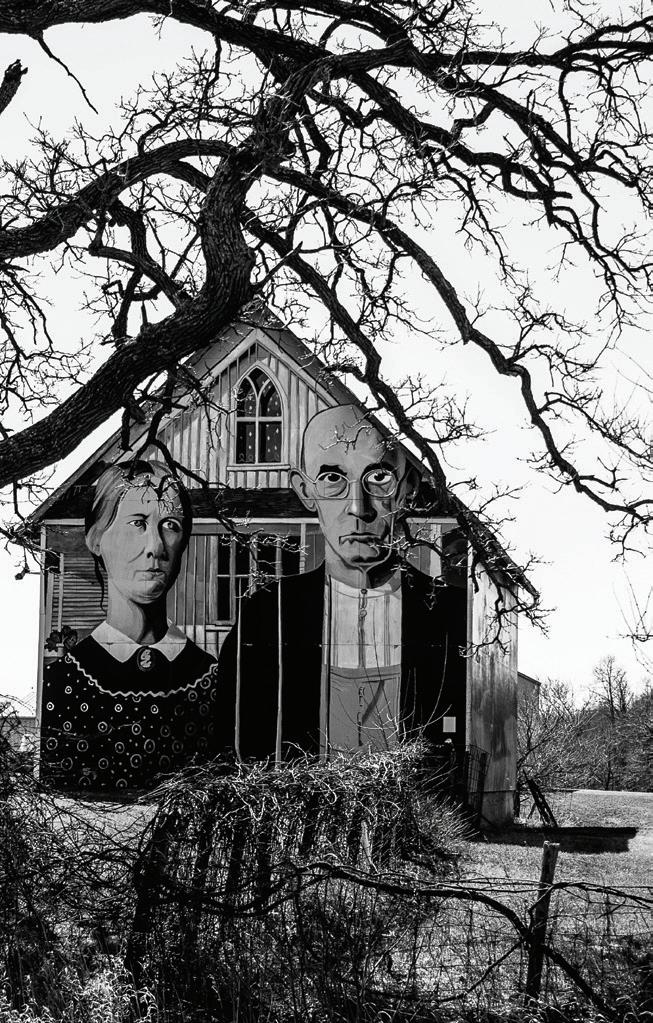
6 minute read
Voices from the Prairie
Winter 2023
Voices from the Prairie Contents
Advertisement
Sounding Our Place . . . 3
Songs of Healing and Community . . . 5
When a Book Becomes a Story . . . 6
The Revialization of Meskwaki Cattail and Bulrush Weaving . . . 7
New Board Members . . . 8
Grants Awarded in 2021 . . . 10
Statement of Activity . . . 10
2022 Donors . . . 11 c o V er: Dancers at the August Powwow at the Meskwaki Settlement in Tama, Iowa.
L-R: Bess Keahna, Mary Young Bear, LeAnn Morgan, Patricia Trujillo, Brenda Wanatee, Nina Young Bear. Pictured in the cattail mat-covered wikiup made by the local group of women weavers who brought back this traditional art of weaving to the community. Photo by Tashina Azure-Mitchell, Azure Sky Photography. Reproduced with permission.
Humanities Iowa
Board of Directors & Staff
President
Richard Moeller, Sioux City
Vice-President & editor
Linda Shenk, Ames s ecretary
Karen Mitchell, Cedar Falls t reasurer
Steve Siegel, Ottumwa directors
Radhi H. Al-Mabuk, Cedar Falls
Peter Drahozal, Eldridge
Harry Dunstan, Marcus
David Eckert, Waterloo
Trevor Harvey, Iowa City
Elizabeth Hoover de Galvez, Des Moines
Kay Krekow, Marcus
Treyla Lee, Sioux City
Debra Marquart, Ames
Rosemarie Ward, Des Moines
Humanities Iowa Staff
Follow Humanities Iowa on Facebook, Twitter, and Instagram @humanitiesiowa
View our Facebook P age www.facebook.com/humanitiesiowa t weets on e V ents and news twitter.com/humanitiesiowa
Follow us on i nstagram www.instagram.com/humanitiesiowa
Find news and information on speakers, grants, and ways to get involved with Humanities Iowa on our website: www.humanitiesiowa.org
Prairie a cting e xecuti V e d irector
Heather Plucar heather-plucar@uiowa.edu a rt d irector
Sara T. Sauers
Humanities Iowa Mission Statement
The mission of Humanities Iowa is to explore and celebrate the diverse people, communities, cultures, and stories of Iowa.
Join other Iowans and support Humanities Iowa. Donations are tax-deductible to the extent permitted by law. Humanities Iowa also accepts gifts of stock or securities. To make a donation or receive more information, please contact our office at 319-335-4149, email us at info@humanitiesiowa.org, or visit our website: www.humanitiesiowa.org.
About Voices from the Prairie
Voices from the Prairie is published annually by Humanities Iowa and distributed to its friends and interested Iowans.
To subscribe, please contact us: Humanities Iowa
PO Box 881 Ames, IA 50010 phone: (319) 335-4149 fax: (319) 335-4154 email: humanities-iowa@uiowa.edu www.humanitiesiowa.org
Sounding Our Place: On Ekphrastic Writing
Debra Marquart, Poet Laureate, State of Iowa
i n the s P ring o F 2022, artist and gallery owner of Mount Vernon Creates, Denise Murphy, issued a call to artists for “plein air” portrayals of Mount Vernon and Lisbon, Iowa. The French term, plein air, generally refers to paintings—most often landscapes— that are finished outdoors within view of the painting’s subject. Mount Vernon Creates expanded the call for the project, “Portrayal of Mount Vernon 2022,” to include other art forms. The call read as follows: “Join area artists as they use their creative skills to express their love of Mount Vernon and Lisbon, Iowa. Painters, photographers, sculptors, and other artists line the streets, parks, and Cornell campus demonstrating their craft.”
Dozens of artists came out to paint and create on the day of the event and submitted their work to the “Portrayal of Mount Vernon 2022” project, which went on display in an exhibition from May 8 through June 30, 2022. Three of the submitted pieces were also chosen to receive top honors. The three

In a Certain Light
I used to think Grant Wood’s perfect Iowa landscapes of rolling green hills like Young Corn and Haying were mere painterly exercises in optimism, romantic yearnings on canvas for a bygone era, until a few years passed and I drove enough Iowa roads, especially early morning and late afternoon journeys, and I saw Iowa at a certain angle, in a certain light—rows of symmetrical corn fields and rusted orange soybeans gleaming for harvest. Just as today driving Highway 1, a clustered city of brick buildings skirted by columnar cypresses and poplars rose in the distance. Through soft light at low angles, I passed meadows lit with gold, edged by low-lying mulberries and dogwoods, framed by sycamores and bur oaks, those deep green overseers who stand tall and guard the beauty.
d ebra m arquart ekphrastic poems you see here were written in response to these award-winning works of art. The Greek word, ekphrasis, means “description,” and in Ancient Greece, the term applied to especially vivid writing that depicted a character or scene. However, more recently, ekphrastic writing has come to be known as a form of writing—most often poetry, but increasingly other prose forms— that depicts and responds to a work of art.
On June 12th, an enthusiastic crowd of artists gathered at Mount Vernon Creates to hear the announcement of winners and to listen to me read the ekphrastic poems. The gallery space was full of interested parties—not only the artists whose work graced the walls of Mount Vernon Creates, but also members of the community who came to hear music and poems. It was an eclectic and engaged audience. At the end of the event, we announced the three winners, each of whom came forward to be acknowledged as I read the poem based on their winning piece. In this way, all afternoon, we shifted our attention from image to words to poetry to song and then back to image—in celebration of the many ways that art helps us experience and understand the rich world in which we live.
I had the opportunity to be a part of this day through a fellowship I had received from the Academy of American Poets (AAP), “Sounding Our Place.” For the fellowship, I had proposed creating a series of experiential events around the state of Iowa, partnering with naturalists and environmental workers to lead hikes and nature walks, followed by creative writing workshops in which participants could write about what they had just learned and experienced. These events did occur throughout the state, and, as often happens with collaboration, new ideas and opportunities formed along the way. Writing these ekphrastic poems was one of those delightful surprises. When Denise Murphy contacted me to see how I might tie my fellowship work into the “Portrayal of Mount
Vernon 2022” project, I suggested that I could write ekphrastic poems in response to the top vote-getters.
This day in Mount Vernon, and through my travels across the state offering the experiential writing workshops, I have found so many things in the state of Iowa that inspire my curiosity and wonder—especially in local history museums and in art museums around the state.
No matter what I write—poems, songs, essays—I always do a great deal of research, most of which never shows up overtly in the writing itself, but rather serves as a foundation of knowledge for me as I draft the work. In the case of the “Portrayal of Mount Vernon” poems, I researched the geology of the region, the flora and fauna of Iowa, the history of Pallisades Kepler Park, and the art of Grant Wood—all because the winning pieces alluded to these subjects. Reading these pieces
The House the Tree Claimed
Twisted oak boughs frame the roof. Bare branches and twigs have grown over the unsmiling faces of the couple who once lived here. Grim and gothic, they are hemmed in now by thorny brambles, rusted chicken wire.

The arched attic window looks on through polka dot curtains, frayed from years of silent witness to the wife’s domestic efforts—the flowerpot on the porch sill, the rickrack apron and cameo brooch, cookies baking, to the artists attending the reception, I was reminded of how much we can learn about the world through interdisciplinary inquiry and engagement.
Mount Vernon Creates: https://www.mountvernoncreates.com/? page_id=16380
Debra Marquart website: https://debramarquart.com/poet-laureate/ no doubt, in the oven, a place made ready for company. It’s a wonder no one ever visited. Her worried side eye glance reveals the reason— the husband’s grouchy smirk and dead eye stare. Pitchfork still in hand, tines upturned and sharp. Behind them, the empty sky, cloudless and sunless. d ebra m arquart
Based on Midwestern Regionalism, Cassidy Oates
The Perfect Day
So many things we think we need in this world when really all that’s required is this river and a dog, make that a bend in the river and an eager dog ready with the short stick he expects you to throw then throw again, as you amble along the banks of the Cedar River under canopies of white oak and basswood. On the other shore, limestone bluffs rise up, palisade cliffs once underwater sediment accruing 425 million years ago during the Silurian when all where you walk was shallow seabed, now risen up and crowding the horizon with red cedars and sugar maples, green maidenhair ferns and mossy liverwort. This place, so ancient, where you stop with your dog, who doesn’t know or care that a mammoth molar was once discovered here or that nearby pre-historic mounds with unearthed pottery shards and flint knives suggest human habitation dating back millennia. Who needs to know these things to have the perfect day?
Cerulean warblers and scarlet tanagers may flit from branch to branch. A bobcat may crouch on an outcropping behind gooseberry and blink its green-gold eyes. Linger here, on this point near the bend in the river. Throw the stick and watch your tongue-wagging dog retrieve it.
Based on Palisades Kepler 1, Doran Pearson





